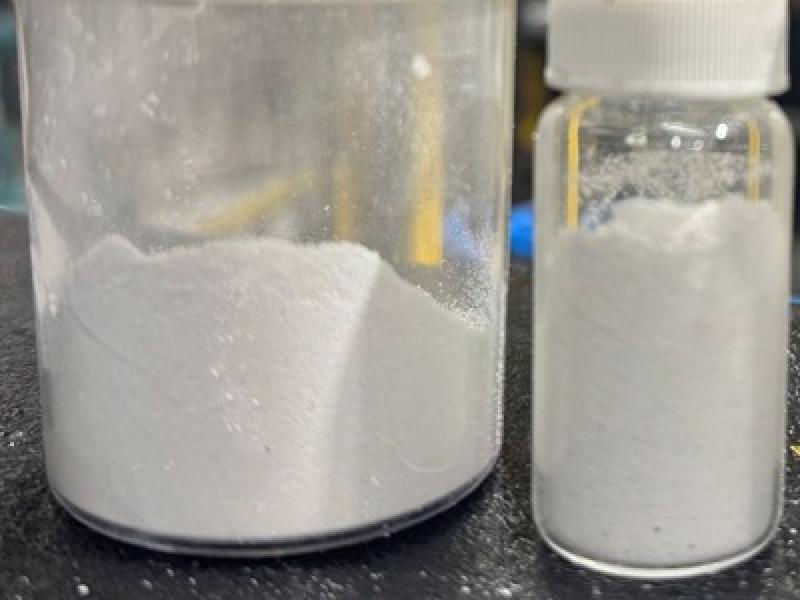
Canada is vastly underperforming when it comes to developing and incentivizing the production of renewable propane, according to the Canadian Propane Association's (CPA) newly released Propane Decarbonization Roadmap for Canada.
The study makes a case for renewable propane as a critical component of Canada's decarbonization strategy. According to the Roadmap, scaling up production of renewable propane would have the potential to generate significant cost savings compared to competing biofuel alternatives such as renewable diesel and hydrogen.
Derived primarily from plant and vegetable oils, animal fats and used cooking oil, renewable propane can easily be integrated into our existing energy infrastructure, providing a cost-effective sustainable energy solution for all sectors of the economy, according to the report.
"Canada must prioritize investments in renewable propane to safeguard energy security and ensure an equitable energy transition for all Canadians," CPA president and CEO Shannon Watt said in a release.
"Propane is crucial for agriculture, industry, transportation and remote, rural and Indigenous communities."
The Roadmap illustrates how Canada is lagging the U.S. with respect to production tax credits, renewable fuel standards and low-carbon fuel standards.
However, Canada could easily become a major centre for renewable propane production should federal and provincial governments level the playing field with alternative renewables by incentivizing producers and thereby drive down future biofuel costs through economies of scale and the creation of a reliable supply chain, the report argues.
According to Watt, existing government legislation is wholly inadequate to the challenge of transforming renewable propane into a thriving industry that could play a substantial role in Canada's renewable energy mix.
Canada currently sending all its biomass production to the U.S.
The Roadmap outlines how Canada has strategic and comparative advantages with respect to renewable propane production, principally due to widely available feedstocks and other low-cost resources, as well as the technology needed to transform biomass into renewable propane.
However, the lack of production incentives compared to biodiesel and other renewables has left the propane industry struggling to find a market in Canada.
"With respect to the state of the renewable propane industry at this point, today there is no renewable propane that is being sold within Canada from Canadian production," Watt said in an interview with Sustainable Biz Canada.
"That's not to say that we're not producing renewable propane. However, I would argue that the policies and regulations have not favoured renewable propane, and we just therefore don't see it getting marketed in the same way that you have biodiesel or ethanol being marketed.
"Renewable propane is available, but we can't get it onto the market. And when we talk to those producers who have renewable propane, they say, 'Unless you can get more incentives as is the case with biodiesel, I'm not going to be able to sell it,'" Watt explained.
Levelling the playing field for renewable propane
Because renewable propane is currently generated primarily as a co-product of renewable diesel, it can scale with the increased scaling of that fuel. At present, however, only a small portion of the renewable propane from renewable diesel production is being captured for delivery to the market because of the limited opportunities to sell the product in Canada.
"We need to ensure Canadian incentives are applied to all molecules, all renewable molecules, not just those (such as biodiesel) that happen to be the golden child at the moment."
The Roadmap makes a comparison between the pace at which the state of California has dramatically boosted its renewable energy production thanks to incentives provided by the America Inflation Reduction Act (IRA) as well as state subsidies. California currently offers renewable propane producers more than three times the production cost incentives that British Columbia provides.
Today, California is the largest consumer of renewable propane in the North America. Within a few years, it is expected that renewable propane production will have displaced more than 50 per cent of California’s conventional propane consumption.
Watt argues the federal government needs to offer renewable propane producers clear and consistent policies and incentives in order to reach net-zero.
"We need to level the playing field. Renewable propane needs to be given the same incentives that the government is giving to biopropane and ethanol across Canada.
"And we also need to be competitive with the U.S. because their IRA plans are very ambitious and (as a result) we're already seeing a halt to investments (in renewable propane production) in Canada, or at least a pause, specifically because investors are looking to the U.S . . ."
Renewable propane getting 'lost in the shuffle'
One of the primary goals of the CPA today is to increase awareness of the potential for renewable propane to reduce emissions and ultimately replace diesel and biodiesel in the Canadian sustainable energy space.
"People just don't think of propane beyond their backyards. They don't understand that propane is actually used in almost every sector across Canada, and certainly in every community from coast to coast to coast. Propane gets lost in the shuffle."
Watt sees it as her mission to raise awareness within the federal government so that it can recognize the potential for renewable propane to help Canada reach its ambitious decarbonization goals.
"If you look at net-zero, we really believe that propane and renewable propane is part of that answer towards net-zero. Propane is a great molecule, whether it's be renewable or traditional. And the thing about propane is that it's very clean burning.
"It has 30 per cent less GHGs (greenhouse gases) than, say, diesel or heating oil, air quality, and overall emissions are significantly lower by 95 per cent. And in the event of spills, there are no issues in terms of remediation or negative impact on water or air quality. Propane simply volatilizes," Watt said.










